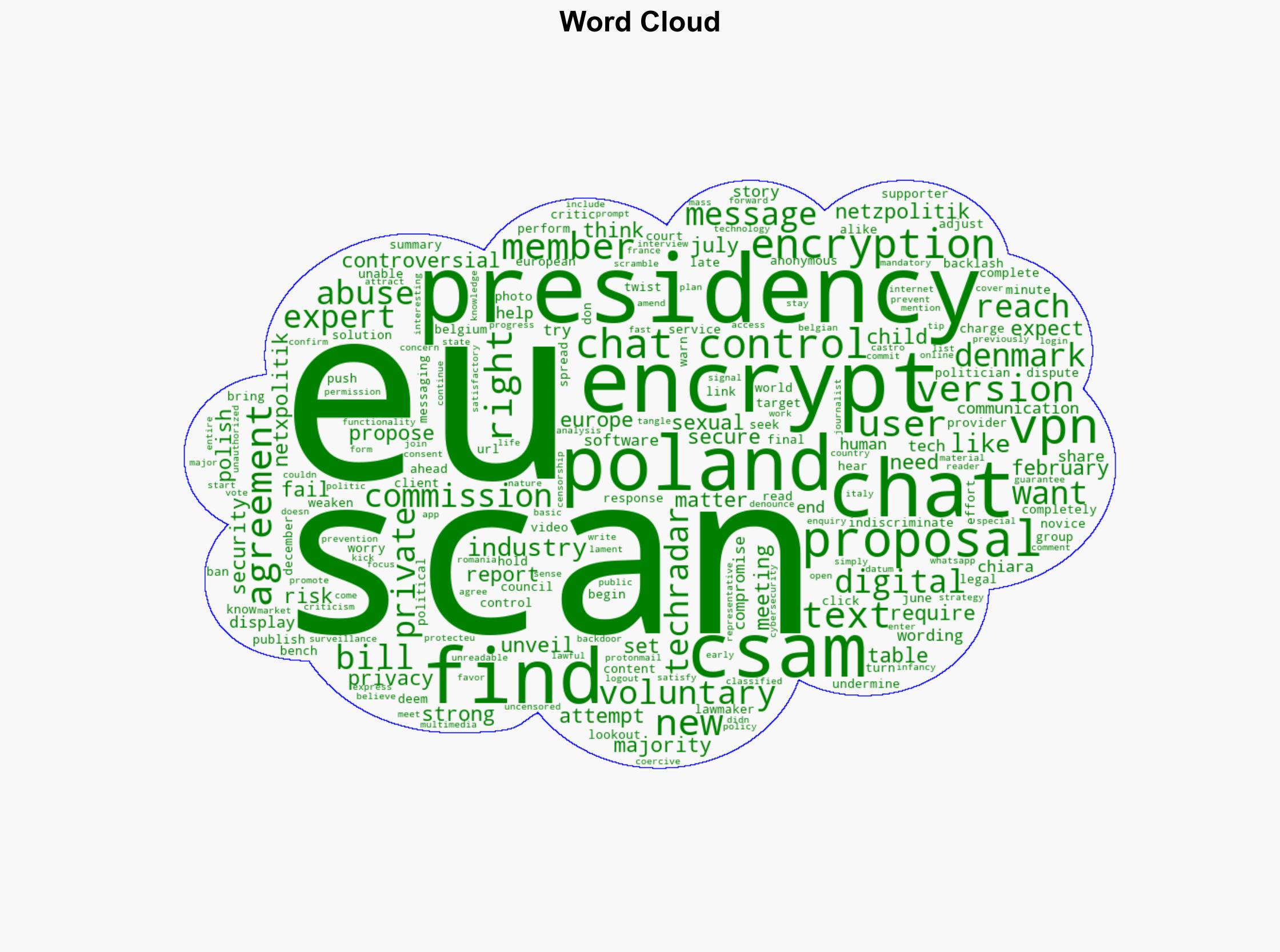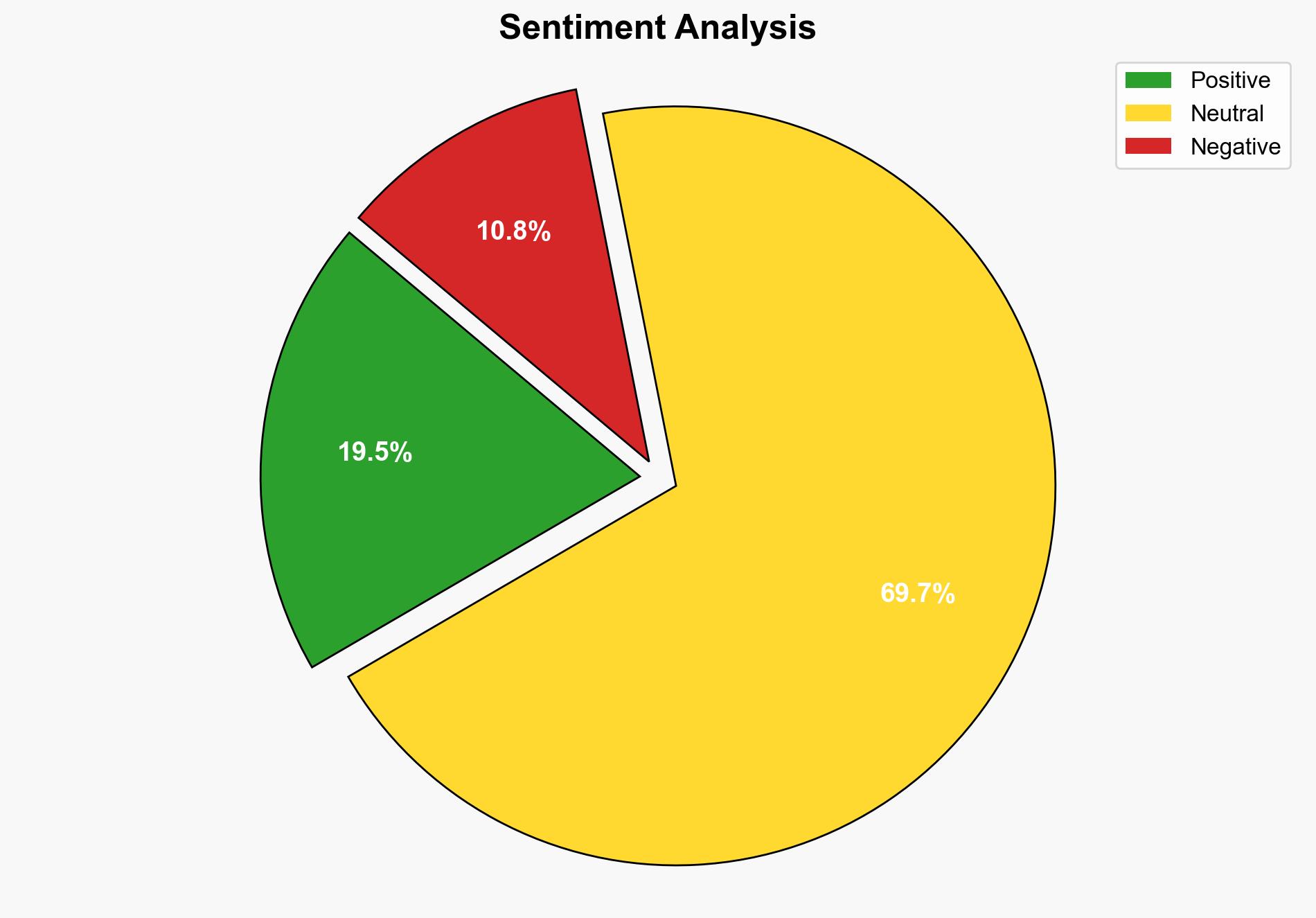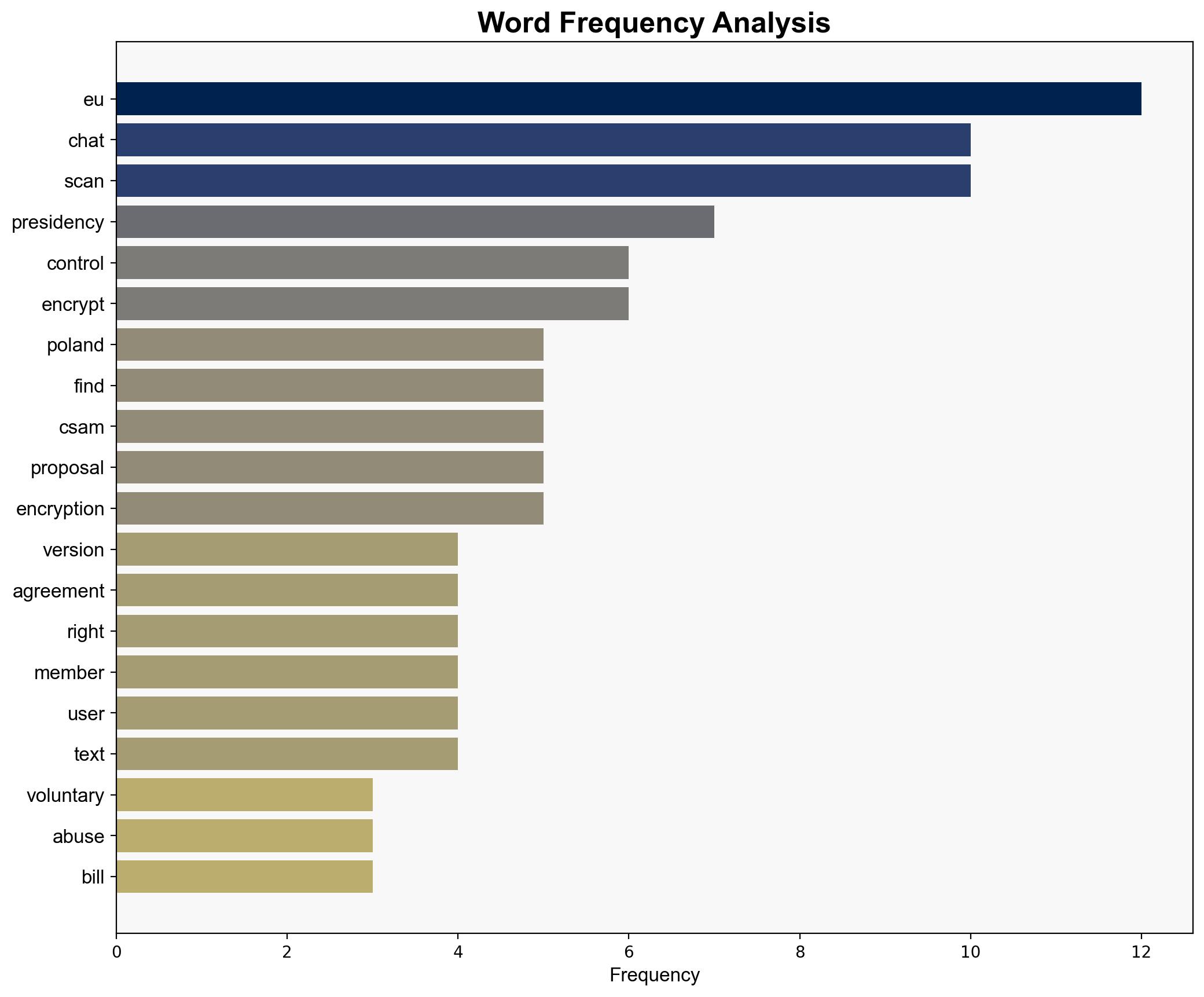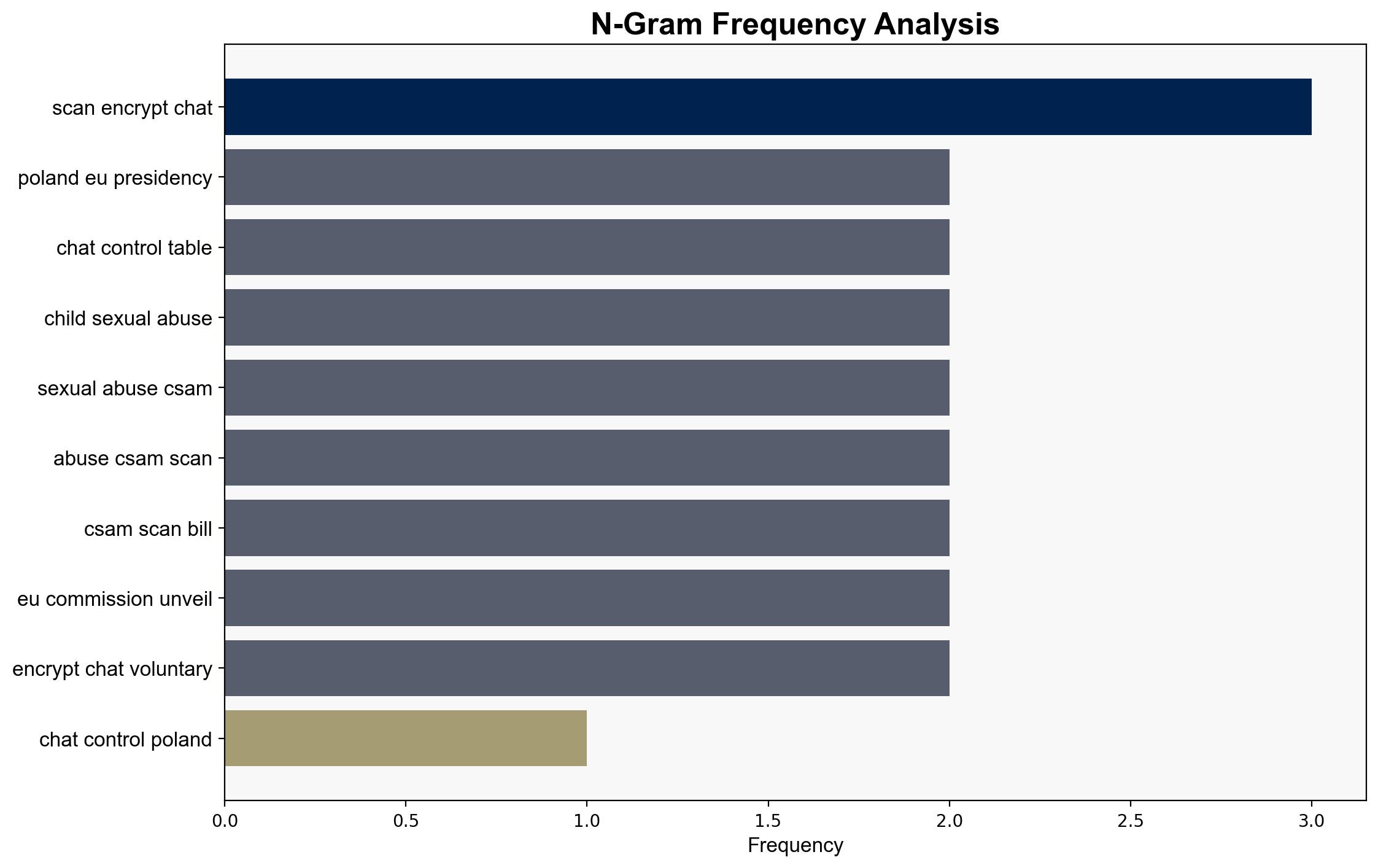Chat Control Poland’s EU Presidency gives up on the voluntary scan of your encrypted chats – TechRadar
Published on: 2025-06-03
Intelligence Report: Chat Control Poland’s EU Presidency gives up on the voluntary scan of your encrypted chats – TechRadar
1. BLUF (Bottom Line Up Front)
The Polish EU Presidency’s attempt to introduce a voluntary scan of encrypted chats for child sexual abuse material (CSAM) has failed to secure majority support among EU member states. This setback highlights the ongoing tension between privacy rights and security measures. The upcoming Danish EU Presidency is expected to continue efforts to find a consensus on this contentious issue. Recommendations include monitoring the progression of this proposal and preparing for potential shifts in encryption policy.
2. Detailed Analysis
The following structured analytic techniques have been applied to ensure methodological consistency:
Adversarial Threat Simulation
Simulated potential actions by cyber adversaries exploiting vulnerabilities in encrypted communication systems, emphasizing the need for robust encryption standards.
Indicators Development
Identified key indicators of policy shifts and technological advancements that could impact encryption and privacy standards in the EU.
Bayesian Scenario Modeling
Used probabilistic models to assess the likelihood of various outcomes related to the EU’s encryption policy, considering political and technological factors.
3. Implications and Strategic Risks
The failure to reach an agreement on the CSAM scanning proposal underscores significant privacy and security risks. The potential for mass surveillance and the undermining of encrypted communications could have far-reaching implications for privacy rights and cybersecurity. The ongoing debate may also influence global encryption standards and practices.
4. Recommendations and Outlook
- Continue to monitor developments in EU encryption policy, particularly under the Danish Presidency.
- Engage with industry stakeholders to advocate for strong encryption standards that balance security needs with privacy rights.
- Scenario-based projections:
- Best Case: A balanced policy is reached that protects both privacy and security.
- Worst Case: Mandatory scanning is implemented, leading to widespread privacy violations.
- Most Likely: Continued negotiations with incremental policy adjustments.
5. Key Individuals and Entities
Chiara (Multimedia Journalist), Netzpolitik (Digital Rights Group)
6. Thematic Tags
national security threats, cybersecurity, privacy rights, EU policy, encryption standards




